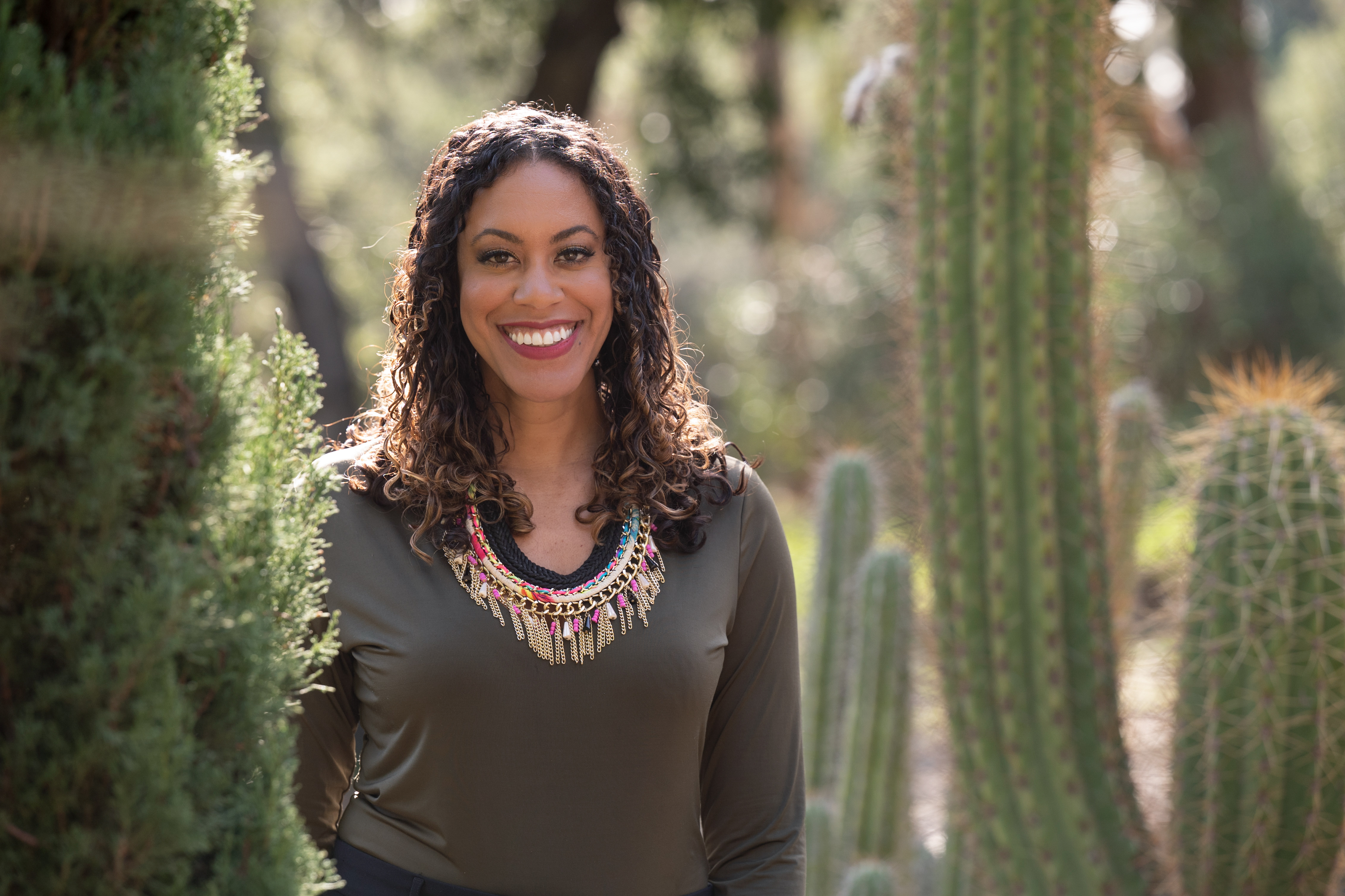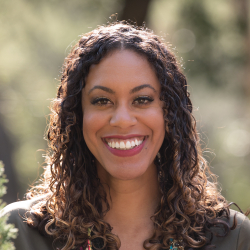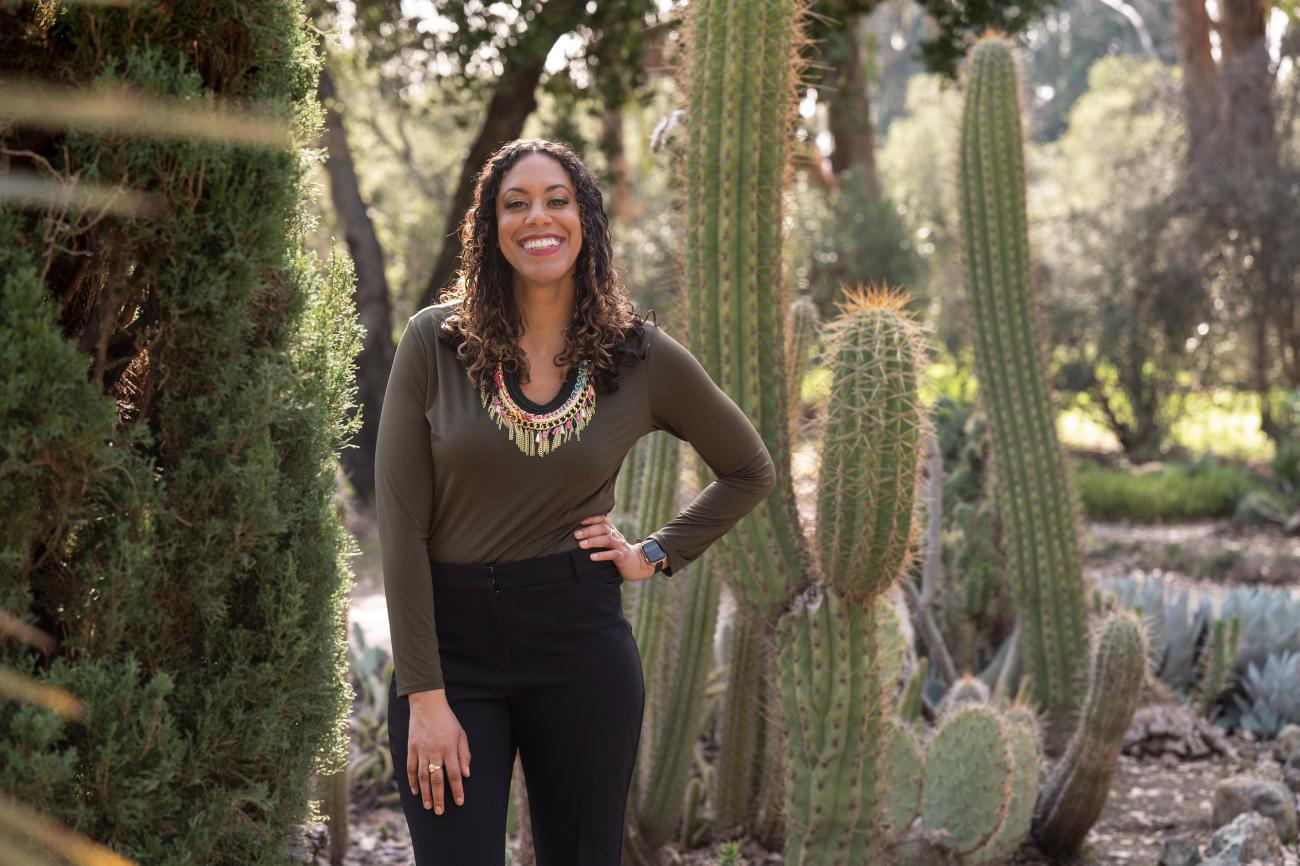
Jessica Lee Stovall
What drew you to study education?
Teaching is hereditary in my family – it's just in my bones. I taught English-Language Arts (ELA) for 11 years, and it was the best job in the universe. I was never happier than when I was in the four walls of my classroom. My students and I would often push the desks to the corners of the rooms and sit on the floor and tell our stories, or stand on top of desks to play vocabulary review games. When I was teaching, I felt so much joy, and I was nicknamed by some as “Ms. Smiley” for the semi-permanent smile I'd wear on my face. Yet, I found that the systemic issues and my compounding experiences with antiblackness in school ultimately made teaching unsustainable for me. My experience is partly why I study Black teachers and Black-affirming spaces – to create the possibility for future professional learning spaces that support Black teacher thriving.
What were you doing prior to applying to the GSE?
I taught ELA at Oak Park River Forest High School in Oak Park, Illinois. I was also an instructional coach, a co-advisor for the Black Student Union, and a boys’ track and field long sprints coach.
What research are you pursuing at Stanford?
My dissertation research consists of three related studies of Black teachers. In one, I explored how Black people create spaces for their learning and growth in spite of the totalizing climate of antiblackness (Sharpe, 2016). Drawing on ross’s (2021) notion of Black educational fugitive space, I conducted a longitudinal examination of how Black teachers co-create what I theorize as a Black teacher fugitive space. I studied how this fugitive space informs and supports their pedagogies and navigation of antiblackness at their school sites. Fugitivity connotes an enslaved person who runs away from anti-Black horrors toward a real or imagined freedom. Studying fugitive spaces helps us understand the conditions under which Black people can thrive, and in the case of education, how Black teachers can remain in the teaching profession despite anti-Black climates.
What surprised you about Stanford once you got here?
As a teacher, I felt like my intellect was never appreciated. I felt like schooling only cared about what outcomes I could “produce” from my students, and not on my thoughts and pedagogies that fostered happy and healthy young people who critically engage with their communities. In short, I was funneled toward compliance and away from innovation. At Stanford, however, I was so surprised to have people excited about my ideas, to have thought partners who really pushed my thinking. I feel supported to think outside the box, to engage deeply with my intellectual side, and to find my own path instead of someone else’s. I am trusted, I feel valued, and I can make what I need out of this opportunity. It really is a “choose your own adventure,” and that's something I have deeply valued about my time here.

Is there some time that you spent with a member of the GSE faculty that you found memorable?
Michael Hines and I sat in the living rooms of several Black teachers who taught during the Bay Area school desegregation efforts of the 1960s and 70s. It was an honor to capture the oral histories of these teachers and look through the artifacts of such amazing women. They are all exemplary educators and activists, and I hope we can feature their stories in the Stanford archives in due time.
What do you do to relax and have fun?
California (and the onset of the global pandemic) has made me into someone who loves hiking. I now spend the ends of my weeks looking up what fun new trek I'm going to try. Another hobby that California has brought me is tide pooling. I have written Half Moon Bay's low tide schedule into my calendar, and I'll drag my friends at the crack of dawn to “ooh” and “ahh” at the various anemones, sea stars, and abalone when the sea pulls back its cover to let us peer inside. I also have been making my way through the wineries in the Santa Cruz mountains because after particularly heavy work weeks, I love a lazy day of wine tasting under the California sun.
What are your career plans?
I have accepted a dream job as an assistant professor of African American Studies (with a courtesy appointment in the school of education) at the University of Wisconsin-Madison.
What advice do you have for prospective students on the application process?
My biggest advice is to let yourself step into the light. I applied when the GRE was still a requirement, and I hadn't taken formal math classes since I was 17. Even after weeks of study, my quantitative score was not competitive. Yet, I knew I had some amazing experiences and some interesting ideas, and so I applied anyway. I am glad that I believed in myself and leaned on the things that I was strong in to take the leap to apply. Even though I struggled with the test taking hurdle to get into Stanford, I am proud that with my grind and the unwavering support of my cohort mates, I can now say I got an A in statistics at Stanford University.
Any tips for incoming students to help them get the most from their time here?
Invest in the people. They are by far the biggest treasure of my journey here.

Photos by Rod Searcey
